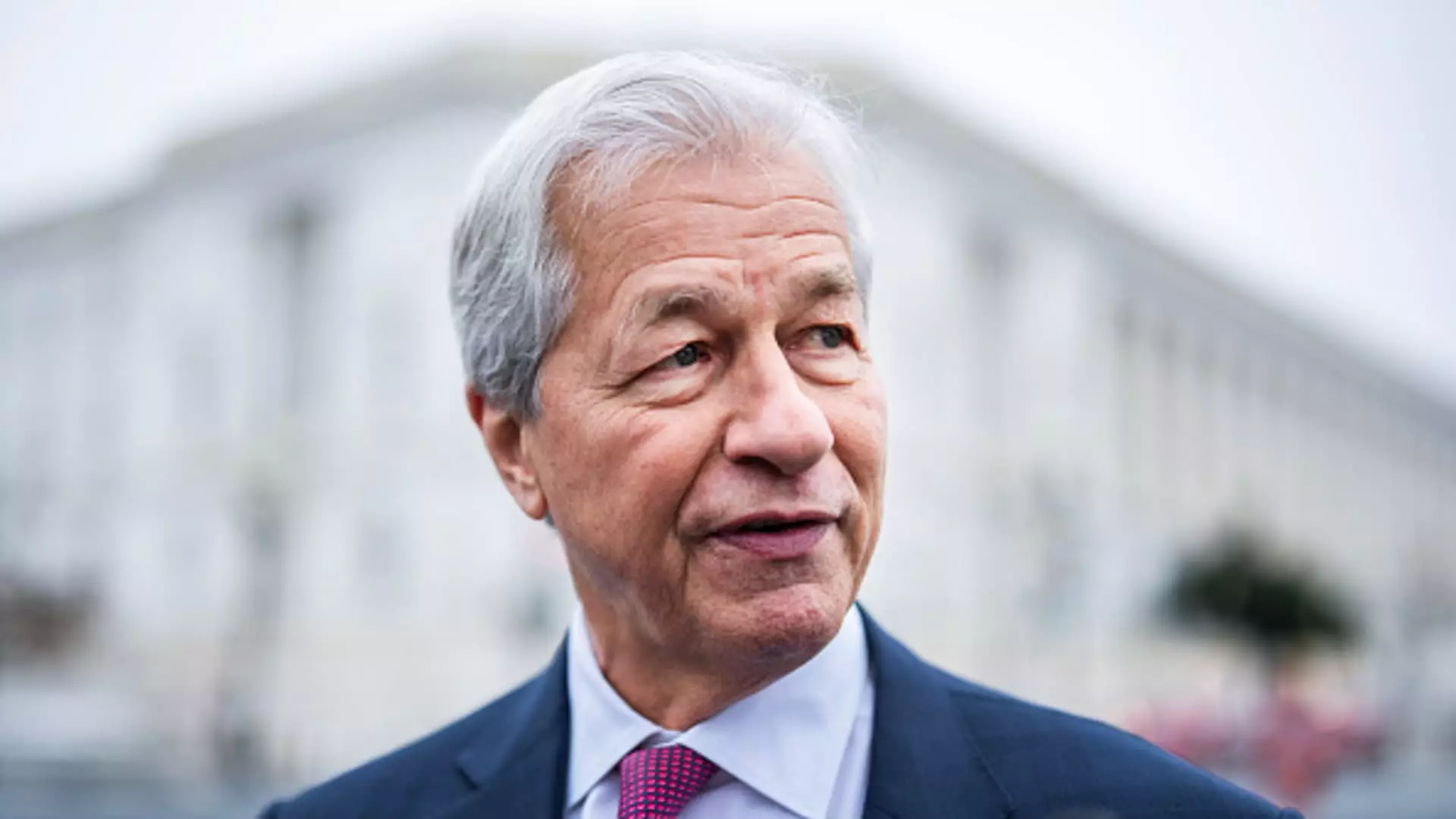In a landscape marked by recent governmental upheaval and restructuring, JPMorgan Chase CEO Jamie Dimon offers a pointed critique of the U.S. government, particularly under the reign of the Trump administration. During a recent interview with CNBC’s Leslie Picker, Dimon articulated his belief that inefficiency pervades governmental operations, suggesting that a significant overhaul is necessary to enhance performance and optimise resource allocation. As he evaluated the government’s approach to terminating federal employees and dismantling agencies such as the Consumer Financial Protection Bureau, Dimon’s reflections provide a corporate lens through which we can examine the intricate relationship between business and governance.
Addressing Inefficiencies and Outcomes
Dimon’s articulation that the government is not only marked by “waste and fraud” but is fundamentally plagued by poor outcomes is telling. His nuanced critique emphasizes that the effectiveness of expenditure is a critical consideration in public policy. The pressing question he raised—are taxpayer dollars being well-spent?—is essential, as it aligns with broader calls for transparency and accountability in government spending. Dimon’s perspective aligns with a growing sentiment among corporate leaders advocating for a streamlined government that can deliver results akin to those demanded in the private sector.
In discussing Elon Musk’s initiative, the Department of Government Efficiency (DOGE), Dimon remained circumspect, opting not to endorse it outright. Instead, he offered a supportive nod toward the idea that we must critically evaluate how governmental bodies operate. He posited that although necessary reform is on the table—especially in terms of scrutinizing federal agencies—there’s a delicate balance to maintain. The specter of overreach in cost-cutting could lead to detrimental legal challenges, a nuance that underscores the complexities involved in governance and fiscal management.
The concern about potential overreach by DOGE also evokes a larger conversation about the checks and balances inherent in American governance. Dimon’s acknowledgment that courts will intervene if DOGE’s initiatives stray from legality is crucial. This highlights the importance of ensuring that efficiency measures do not compromise statutory obligations or ethical standards. While Dimon expresses optimism about DOGE’s potential success, he tempers this enthusiasm with a sober recognition of the risks involved.
The discussion also veered toward other corporate matters, such as Dimon’s insistence on a five-day in-office workweek, which may reflect broader shifts in workplace culture returning to traditional norms post-pandemic. Furthermore, his views on international affairs, trade tariffs, and consumer behavior reiterate the interconnected nature of domestic policy and economic strategy. Ultimately, Dimon’s insights serve as a reminder that business leaders hold significant influence in shaping public discourse around governance and its efficacy. In an era of rapid change, the dialogue fostered by such leaders could be pivotal in steering the course of governmental reform.
Through the lens of Dimon’s critique, we are prompted to reconsider not merely the role of government itself, but how businesses and political entities might more effectively collaborate to foster a more competent and accountable public sector.

